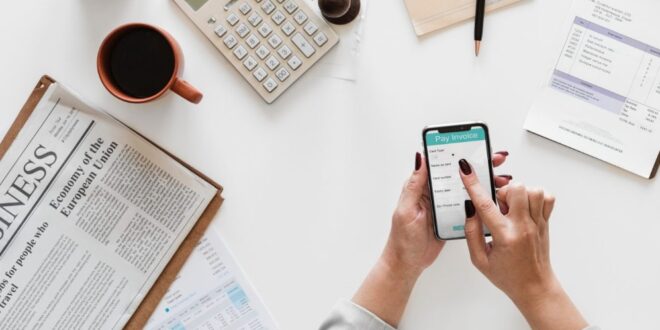Ask any budding entrepreneur what the key things on their mind are and we’d very much doubt that accounting would roll off their tongue.
In contrast, pose the same question to a seasoned veteran of business and the response will be very different. After all, once your business has become established, tax is one of those topics that doesn’t go away and needs regular upkeep.
While it might not feel the right time to dive into your accountancy practices, particularly if you’ve only just launched your business and income is on the low side, starting early is the best thing you can possibly do. Getting things in order will serve you well for years to come, as we’ll find out through today’s article.
1. Take your expenses seriously

In other words, record everything. So-called small expenses might not feel important, but by the year-end, they can make all the difference.
Whether it is a taxi fare or your public liability insurance obligations, it all counts.
Unfortunately, we regularly see small businesses just making it up as they go along with their expenses policy. In other words, they don’t keep any records and when it is time to file their returns, they’re left scratching their head.
It might be mundane, it might be anything but the hustle and bustle of a start-up culture, but keeping records of your expenses is one of the best basic tips you can take care of (regardless of your size).
2. Get an accountant on board
This might seem like an obvious one, particularly if you’ve just started to turn a profit, but we’re always surprised by the number of small businesses that choose to go it alone.
There are so many complex regulations and laws surrounding tax, that you’re almost certainly going to need some professional help at some point. In case you need more information on this, you can check Axa.
Granted, an accountant will cost you money, but the returns will very likely be worth it. You can either hire your own or look for third-party companies like CZ Consultancy that offers affordable accounting services.
3. Remember, you have a bill to pay at the end of the year!

This is one of the most important basic tips and one that is regularly forgotten.
Self-assessment might not be due for another 11 months, but that doesn’t mean you shouldn’t be setting money aside.
If you don’t, you’re likely to find yourself in a position where you can’t pay your tax bill, and that will only lead to penalties and interest charges.
Let’s not forget that you’re no longer in a world where your employer does everything for you. You now have this responsibility and while it might “feel” like the money is rolling in, just remember, not all of it will be yours at the year-end.
4. Don’t forget about the special allowances
Depending on your business, there might be certain types of expenditure that you can claim against.
For example, if you’re a sole trader and you use your home as your office, you might be entitled to claim a portion of your mortgage or rent as an allowable expense.
Or, a big one for companies in the Annual Investment Allowance, which allows you to deduct the full value of some assets from your final tax bill. In other words, rather than just deducting from your profits as is generally the case, your entire investment in some assets is effectively wiped off your tax bill. It’s a huge incentive for companies and one that certainly grabbed plenty of attention when it was announced in 2024.
In short, there are countless initiatives to choose from – you’ve just got to be aware of them.
5. Consider using software

While it might not be the most exciting use of your time, keeping on top of your accounts is vital if you want to stay compliant.
Thankfully, there are now myriad software solutions on the market that can make your life a whole lot easier.
From keeping track of your expenses to generating invoices and filing your self-assessment return, there is a tool for almost everything.
Not only will this make your life easier, but it will also give you more time to focus on the things that really matter, like growing your business.
At this point, let’s highlight that we’re not talking about a basic Excel solution. While this will work for the simple calculations, tax affairs are anything but the S-word and will need specific mechanisms that are able to quickly analyze your entire business.
6. Not keeping things separate
When you’re small, it’s all too easy to think small.
However, this isn’t the end goal, is it? After all, you’re looking to make a real go of your start-up, and this means thinking about the long-term. You need to stop the process of merging your personal and business affairs together and completely separate the two.
In other words, quit sharing your personal bank account for business use, and stop using your personal credit cards for company purchases. Unsurprisingly, the opposite is also true – the last thing you want is scratching your head why your weekly shop is part of your annual expenses after mixing up your cards.
7. Not abiding by Generally Accepted Accounting Principles

Also known as GAAP, this is the bread and butter of your accounting practices.
In truth, we could pen an entire dissertation on how to manage this, but let’s instead focus on a key example to drill home how important some of these are.
It’s very easy to take something of a relaxed approach when it comes to accounting, booking your income and expenses into your software of choice whenever you feel necessary.
According to GAAP, this is entirely the wrong way to look at things. It results in you quickly losing track of your monthly performance; after all, if things aren’t accrued at the proper times, how do you know how you’re accurately performing?
In truth, the examples can go on, but try and shift away from cash-based accounting and instead understand the proper industry standards which will allow you to get a firmer grasp on your business.
 Hi Boox Popular Magazine 2024
Hi Boox Popular Magazine 2024



